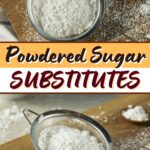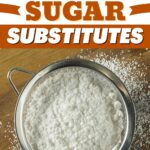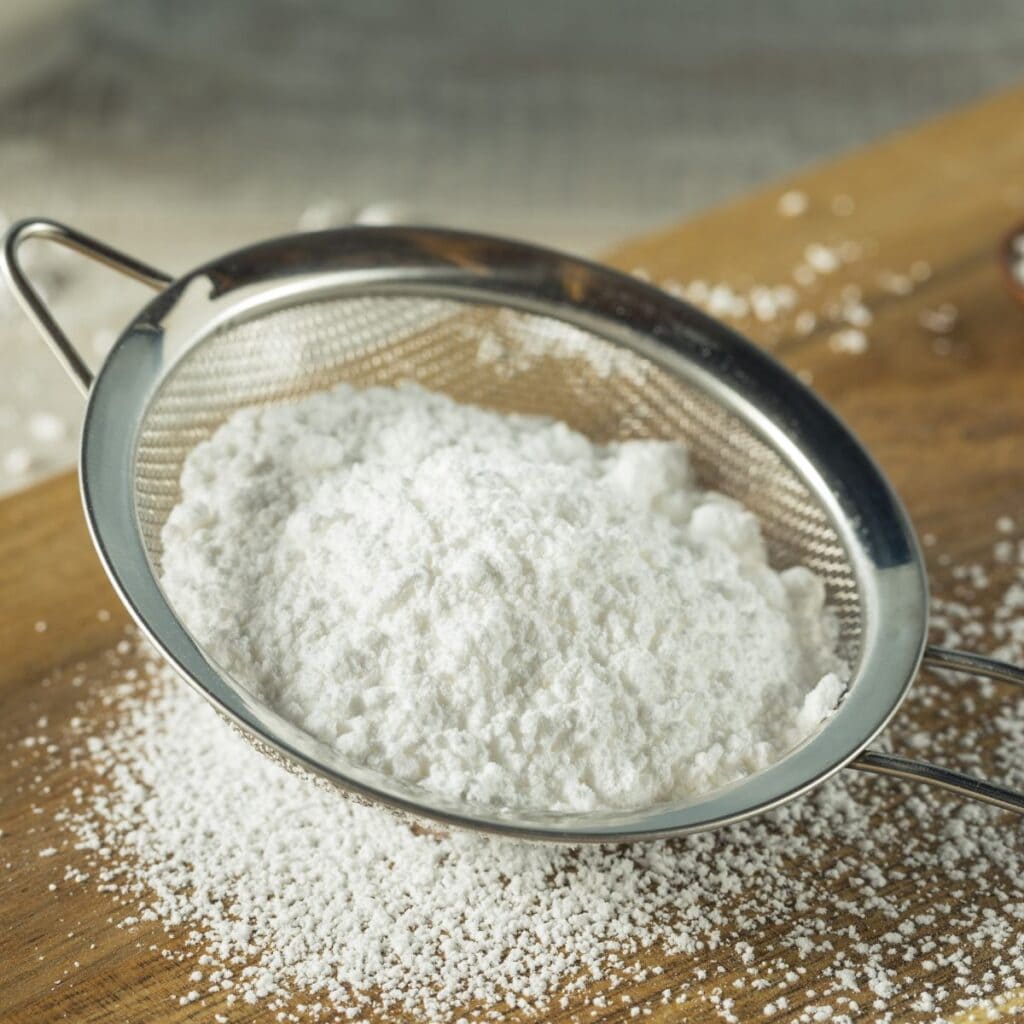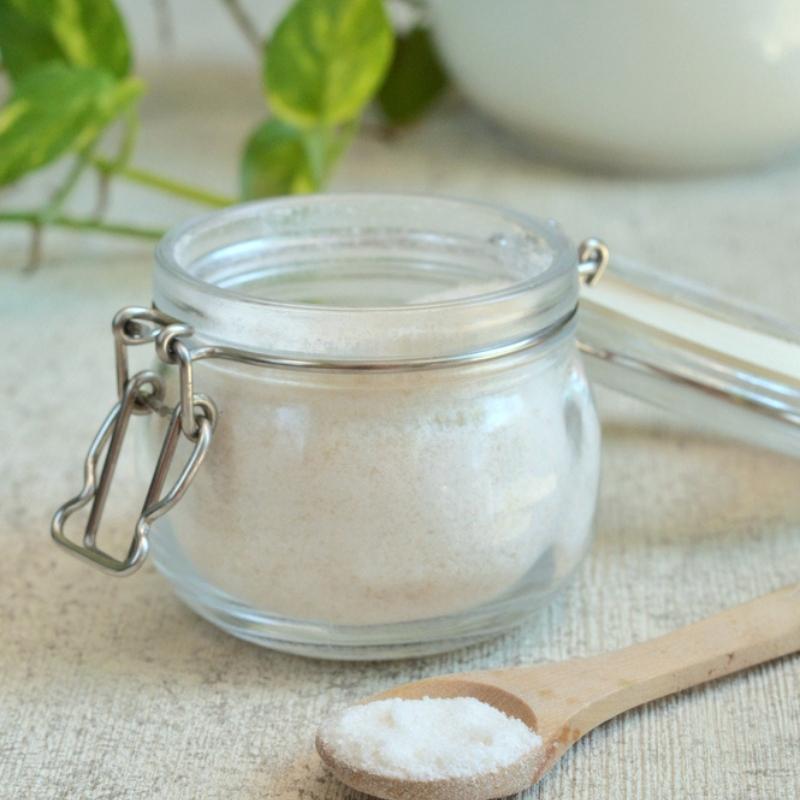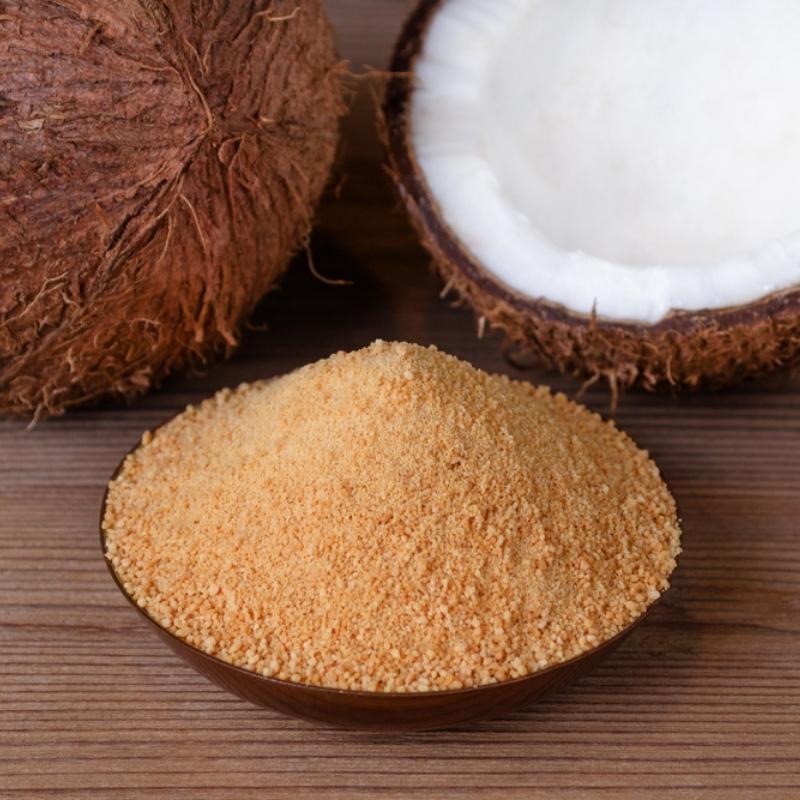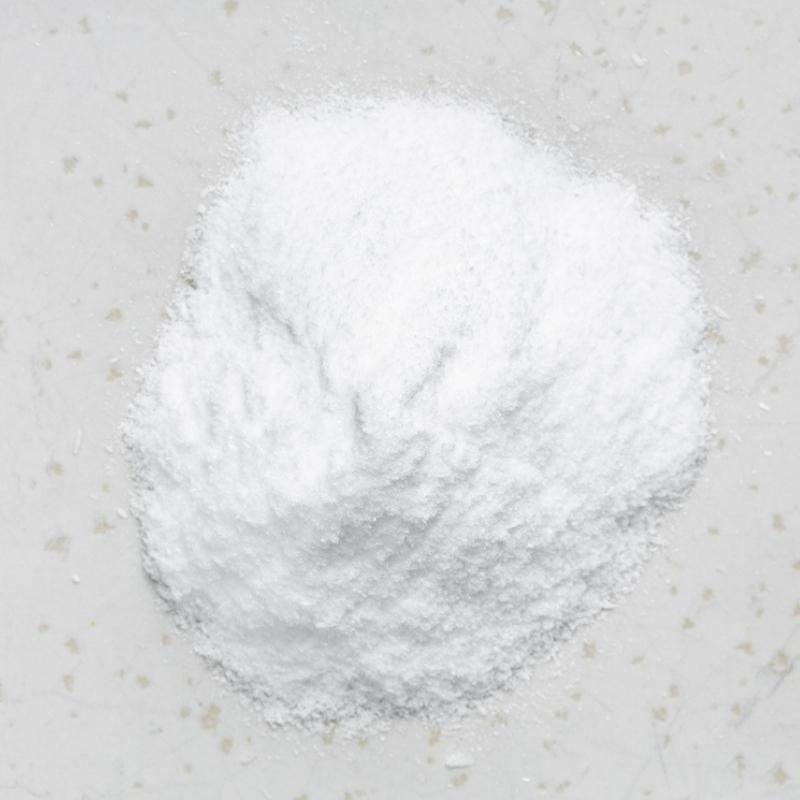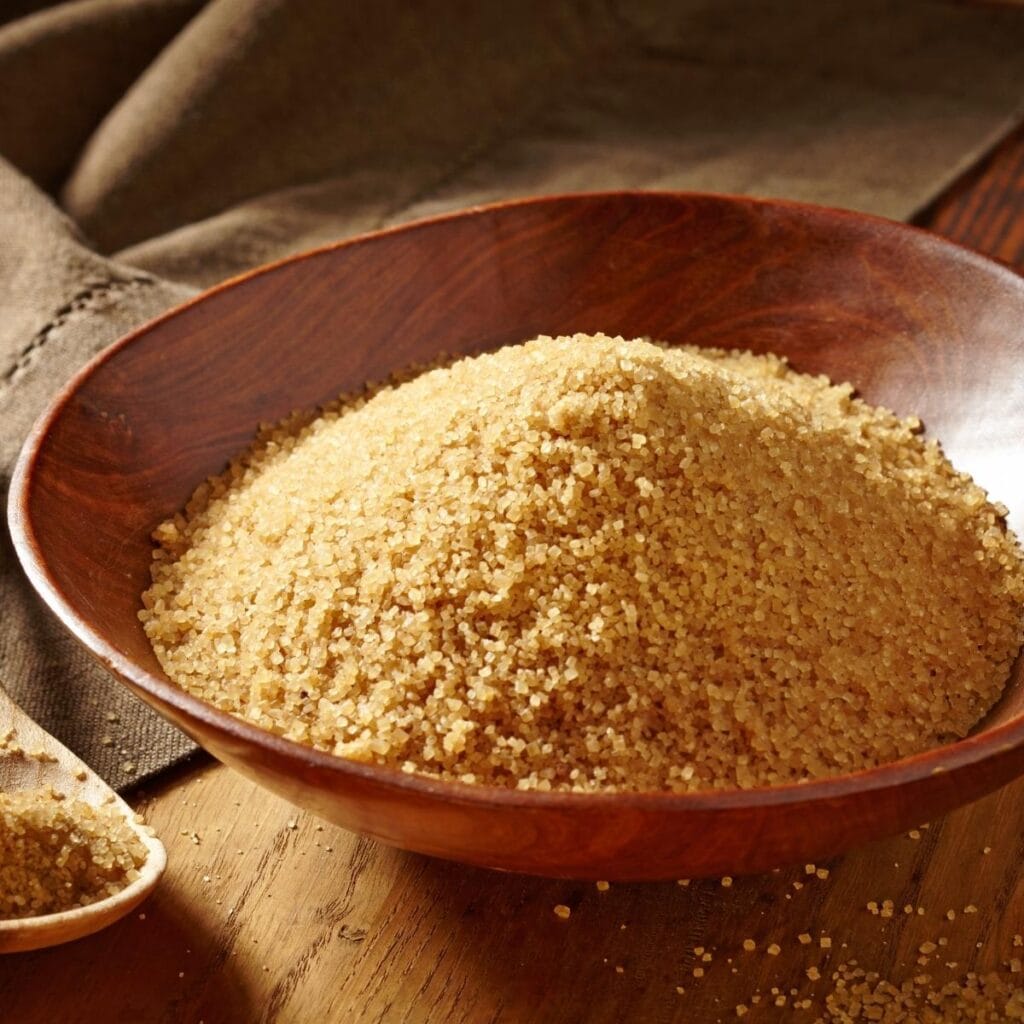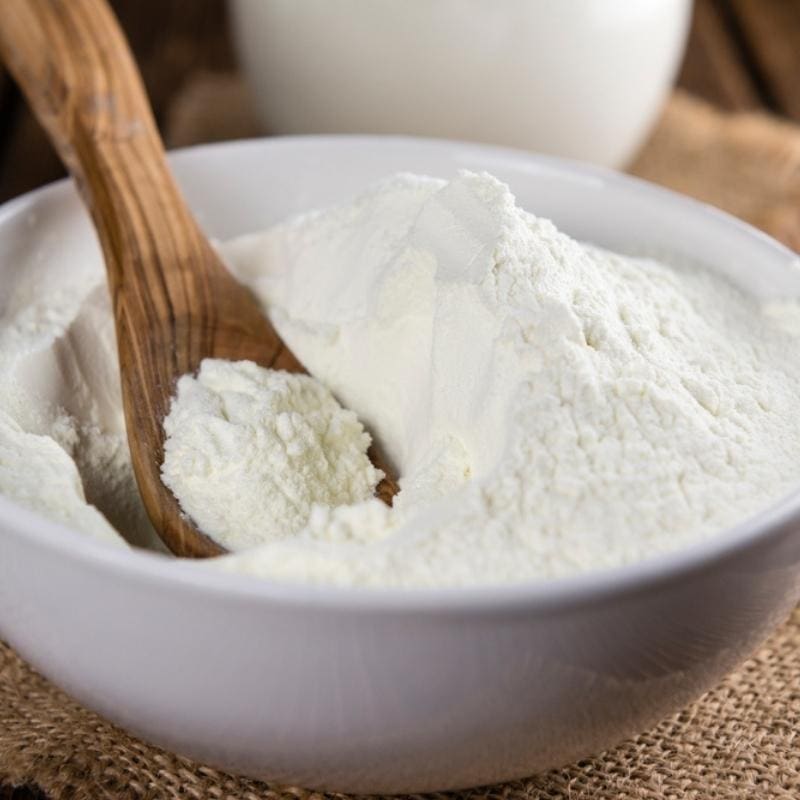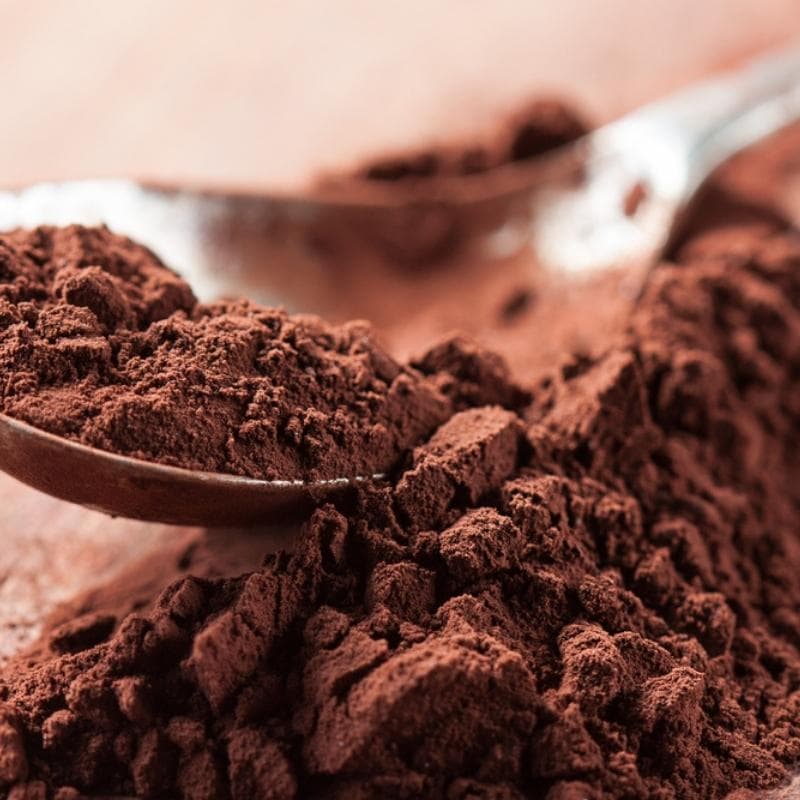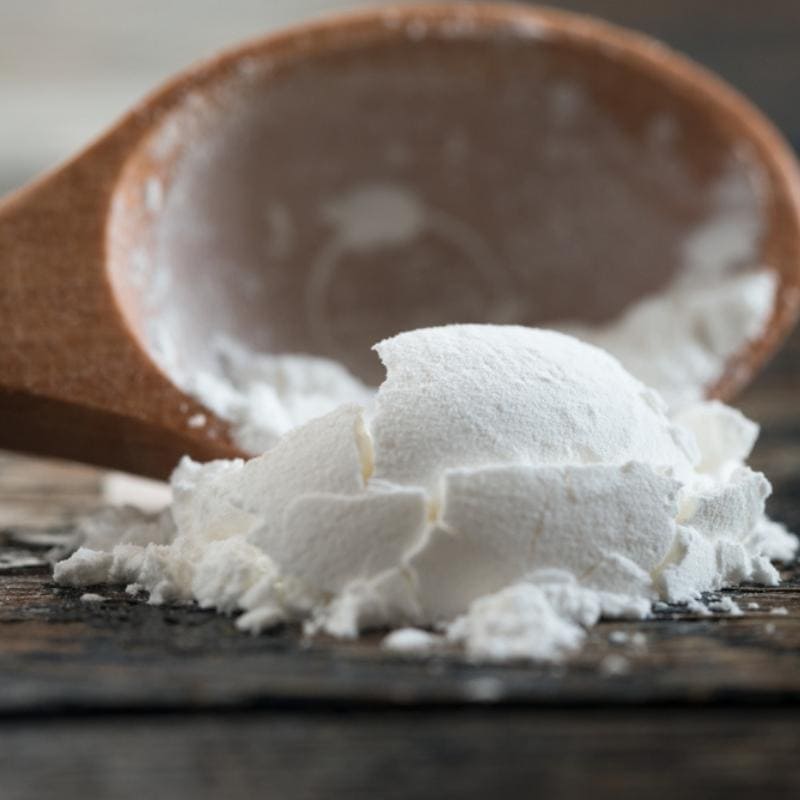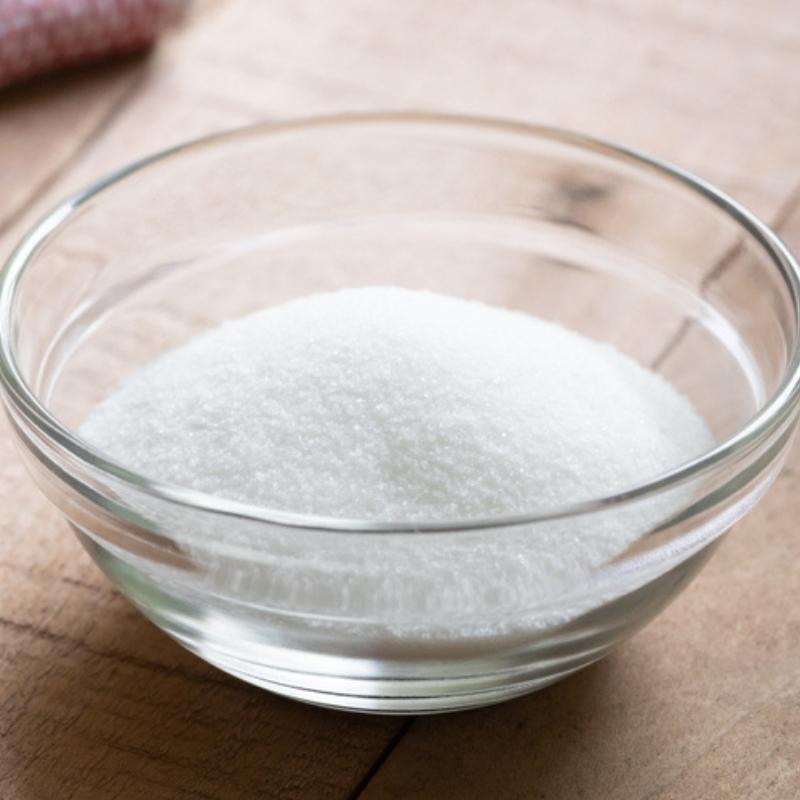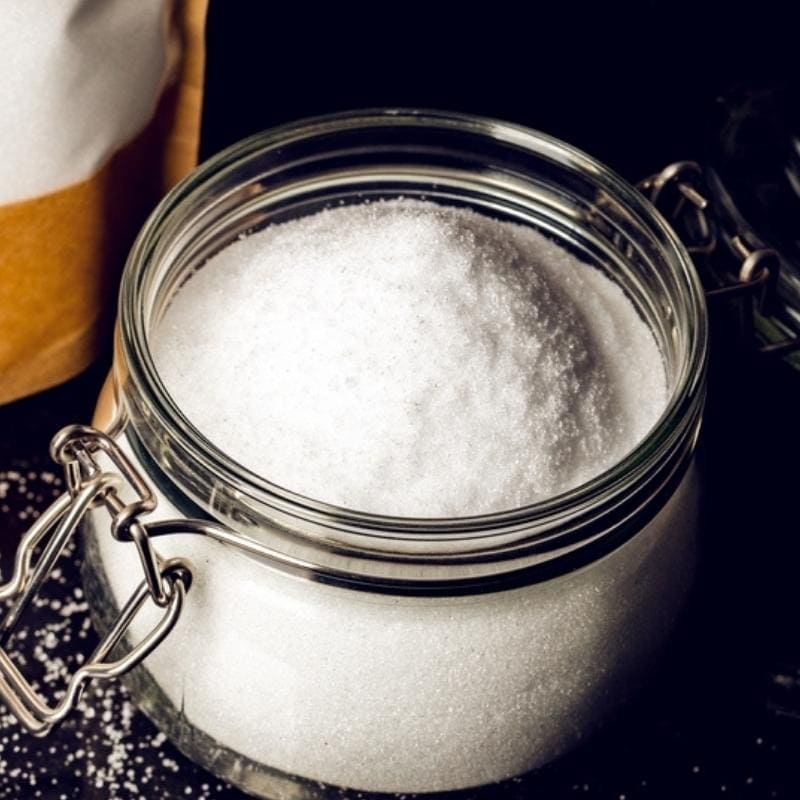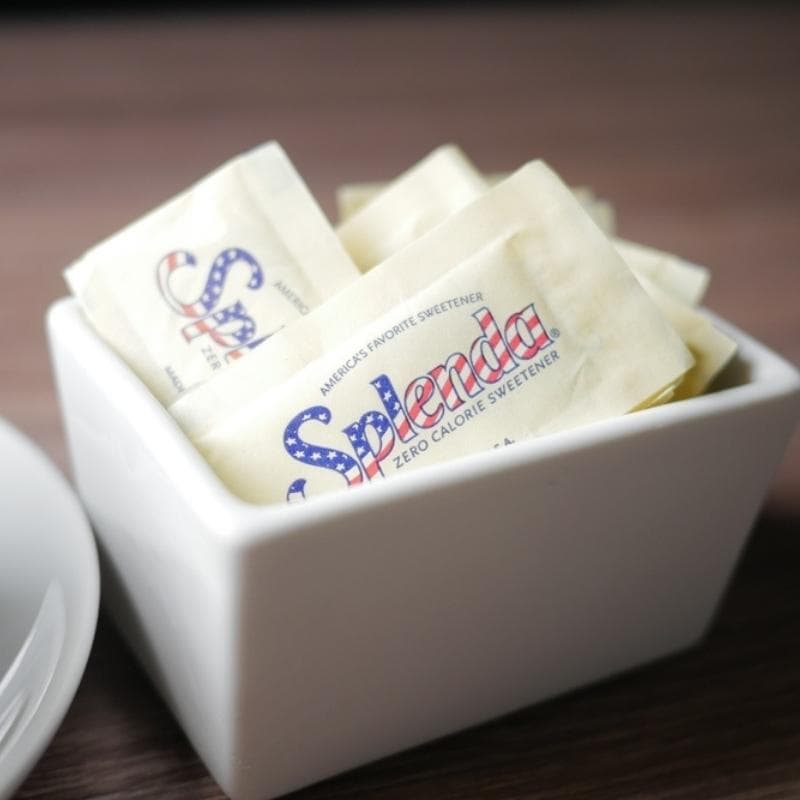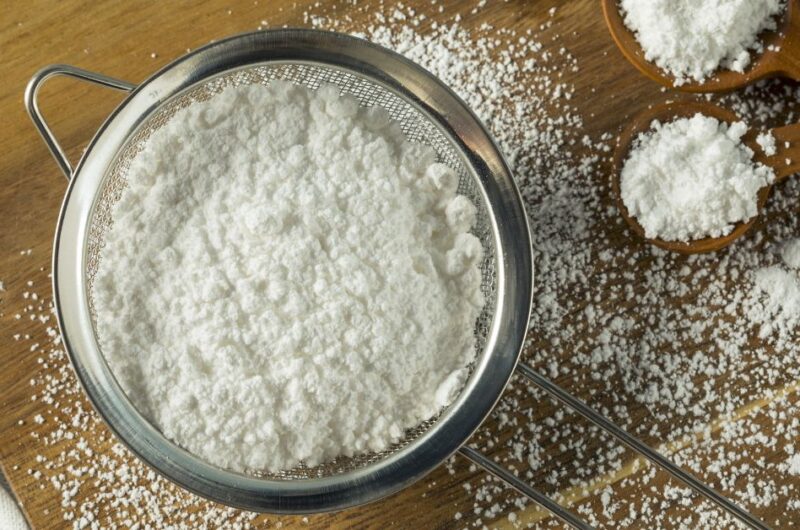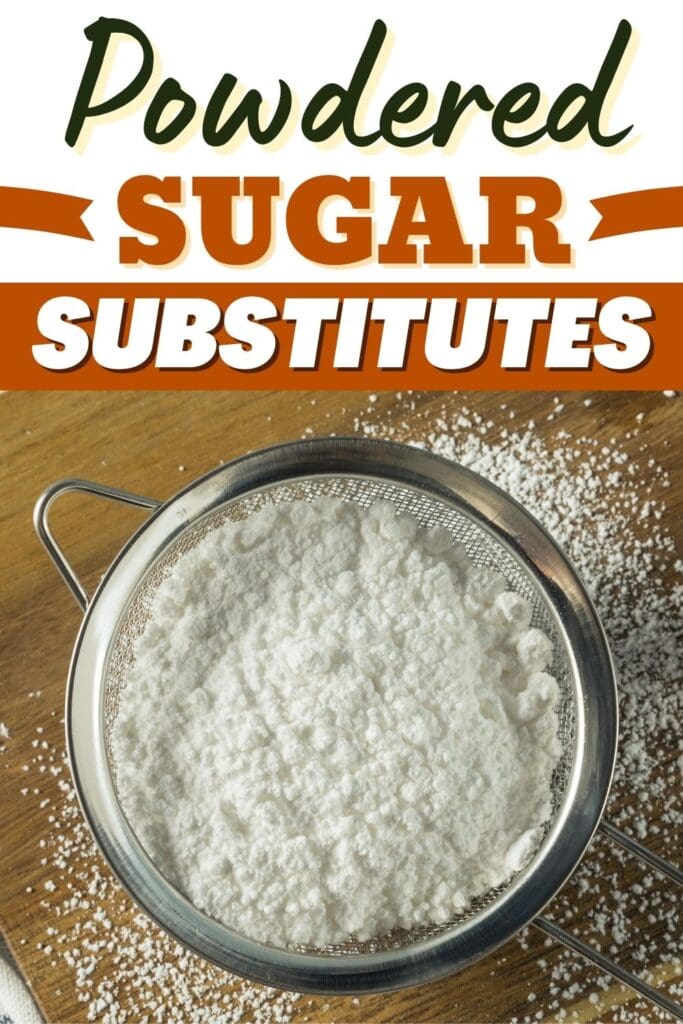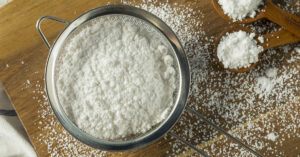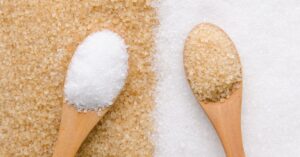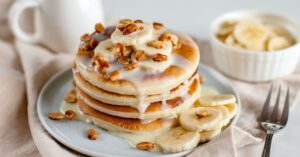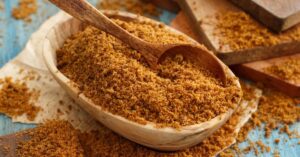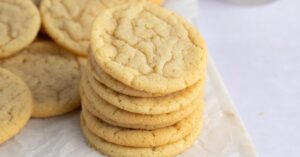Some will be more suited to your needs than others. But they’ll all work in specific recipes when you need them. Maybe you ran out in the middle of baking. Or perhaps you want a sugar-free alternative. But really, it doesn’t matter why you need these powdered sugar substitutes. Knowing about alternatives in a pinch is always handy if you’re an avid baker. So, let’s explore some of the most popular substitutes for powdered sugar. That way, you’ll never be caught out.
What is Powdered Sugar?
Powdered sugar. Icing sugar. Confectioner’s sugar. To paraphrase Shakespeare, powdered sugar by any other name would taste as sweet. But what is it? Powdered sugar is granulated sugar that has been blended into a very fine powder. Also known as 10X, it’s usually ground or pulverized ten times to get the finest finish. Powdered sugar often includes a small amount of cornstarch to keep it from clumping and is most often used in baking. It’s ideal for making homemade glazes, icing, and frosting because it dissolves well and leaves no texture behind. That’s why we can use it raw and why it’s sometimes used in cookies that don’t bake for long – regular sugar would leave a grainy texture behind. Like any sugar, it’s not extremely healthy. It certainly tastes good, though.
10 Best Substitutes for Powdered Sugar
Now, let’s get to what you came here for – the powdered sugar substitutes. I’ve listed ten of my favorites here, and some are obviously better than others. Try them and see which ones you like best.
1. DIY Powdered Sugar
Unsurprisingly, the best substitute for powdered sugar is powdered sugar itself! As mentioned, it’s just granulated sugar that’s been pulverized into a fine powder. So, if you have a decent blender, you can easily make your own 10X. All you’ll need is 1 cup of regular sugar and 1 tablespoon of cornstarch. Dump both ingredients into the blender and pulse it until it’s fine. Once it’s ready, you can serve it as is or strain it for an even finer texture. Finally, use it in any recipe that calls for powdered sugar. *Note: If you don’t have cornstarch, you can use arrowroot instead. You could also process sugar by itself. If you use that method, use it immediately, as it may clump as it sits.
2. Powdered Coconut Sugar
Try powdered coconut sugar if you’re looking for a healthier powdered sugar alternative. You can find it online or in specialty food stores. That said, I’ve seen it in larger supermarkets too. Of course, buying regular coconut sugar and powdering it yourself is easier. Just use the above method, and you’re all set. You can substitute it measure-for-measure for powdered sugar.
3. Powdered Dextrose (D-glucose)
Powdered dextrose or D-glucose may sound like something from a chem lab, but it’s actually an ingredient that’s not hard to find online. Using powdered dextrose will require some kitchen alchemy, though. For one thing, it melts/burns much faster than regular powdered sugar. So keep that in mind when cooking with it, and only add it near the end of your cooking process. Additionally, it sucks up moisture like crazy and is less sweet than powdered sugar. With that in mind, you may have to adjust for this in your recipes by adding more liquid. I’ll be honest; it’s not my favorite substitute. In taste and texture, it’s pretty much spot-on. But unfortunately, it can be hard work for those not well-practiced in self-adjusting recipes. Still, if you’re an experienced baker, you could probably use it easily.
4. Raw Turbinado Sugar
As mentioned above, you can quickly turn ‘regular’ sugar into powdered sugar. But what if all you have is brown? Well, you can turn raw sugar into powdered sugar using the same method as above. What you can’t use, however, is regular brown sugar. Because it has molasses mixed in, it won’t turn into a powder. Also, you could just use regular granulate sugar in place of powdered in baking (white or raw). Substitute 1 3/4 cup of granulated sugar for 1 cup of powdered sugar. You won’t get the same texture, but the sweetness and flavor will be just right.
5. Dry Milk Powder
Is your problem with powdered sugar the sugar? Surprisingly, dry milk powder (powdered milk) is a tremendous sugar-free substitute. You’ll use the DIY method above with powdered milk, cornstarch, and your favorite sugar-free sweetener. Add them to a blender, and let it do its thing. Use the resulting powder in a one-to-one swap for powdered sugar. Remember, though, powdered milk is designed to turn into a liquid. So it absorbs a lot of moisture compared to powdered sugar. For that reason, you may need to adjust your recipe.
6. Hot Cocoa Mix
One powdered milk substitute people often overlook is powdered cocoa. It might not be suitable for everything, but it’s certainly ideal for chocolate recipes. It’s already sweet, but you may want to process it until it’s more powdery. Once you’ve done that, you can swap it out cup-for-cup for powdered sugar.
7. Snow Powder
Unless you’re a professional baker, you may not be familiar with snow powder. A blend of dextrose, palm oil (or other vegetable fats), anti-caking agents, and titanium dioxide, chefs use it as a topping on baked goods. It’s almost the same as powdered sugar, but it won’t melt into the food. For example, if you’ve ever made lemon bars, you’ll know that a dusting of 10X quickly absorbs the moisture on top, disappearing from sight. Snow powder won’t do that. It’ll stay put even if you dust it over warm baked goods. Unsurprisingly, it’s a fantastic replacement if you need powdered sugar for a topping. Make it yourself with the following ingredients:
Glucose (1 cup)Cornstarch (2 tablespoons)Titanium dioxide (1 tablespoon)
8. Baker’s Sugar/ Caster Sugar
Baker’s sugar (caster sugar) is pretty similar to powdered sugar. Both are powdered forms of granulated sugar. The primary difference, however, is that powdered sugar is finer. Don’t hesitate to break out the caster sugar if you’re in a bind, though. The texture won’t be precisely the same, but most people won’t even notice.
9. Xylitol Powder
Anyone who’s ever cut down on carbs is likely familiar with xylitol. It’s a sugar alcohol made from veggies, fruits, and grains, and it’s incredibly low-calorie and low-carb. Plus, it comes in many forms, one of which is powdered m and perfect for replacing powdered sugar. If your xylitol has larger crystals, toss it in a food processor and blend it until the crystals are small and powdery. Then, use the xylitol at a one-to-one ratio for powdered sugar. There are two things to remember about xylitol:
10. Stevia, Splenda, Swerve, and Other Sugar-Free Sweeteners
Despite their lack of sugar, sugar-free sweeteners are typically sweeter than sugar! So, when using one, you’ll need to use half the amount of powdered sugar required. For example, if a recipe calls for two tablespoons of powdered sugar, use only one. To make a replacement from these ingredients, follow these steps: As with all sugar-free sweetener recipes, the taste will be slightly different. (Imagine a Reese’s Cup versus an Atkin’s peanut butter cup.) In a pinch, these will work better than nothing, though.
Other Substitutes To Keep On Hand
Nutritional Yeast SubstitutesAlmond Flour SubstitutesCream of Tartar SubstitutesHoney Substitutes Click on a star to rate it!
Average rating 5 / 5. Vote count: 1 No votes so far! Be the first to rate this post.
Share on social media: Let us improve this post!
